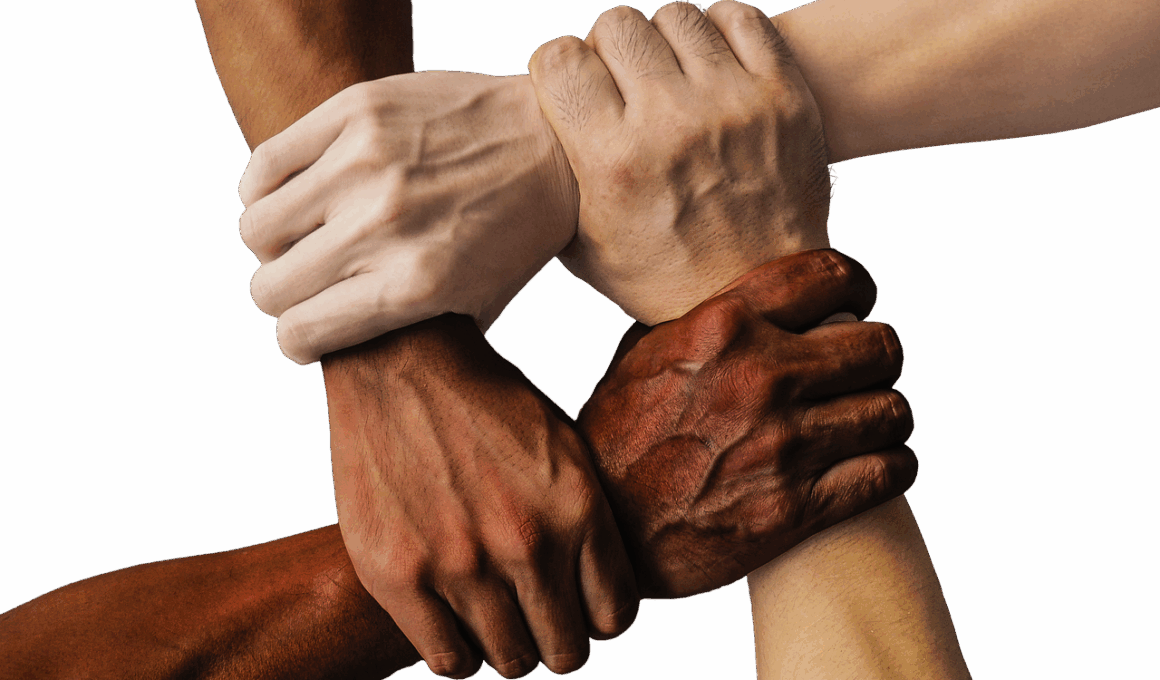How Community Sports Can Combat Corruption and Match-Fixing
In recent times, the world of sports has faced severe scrutiny concerning ethical issues like corruption and match-fixing. Community sports programs play a pivotal role in fostering ethical behavior among young athletes. By instilling values such as fairness, respect, and integrity, these programs can empower participants to resist unethical practices. Moreover, community sports create a supportive environment that emphasizes teamwork instead of personal gains. This shift in focus helps cultivate competitive spirit and nurtures the next generation of athletes who prioritize ethics over winning at all costs. With a strong emphasis on community, these sports programs provide an essential foundation for good sportsmanship. By addressing the problem at the grassroots level, community sports can effectively combat corruption in sports. Young athletes learn not only to strive for victory but also to uphold ethical values across all levels of competition. This dual approach enriches both their personal growth and sports experiences. Participating in community sports further allows athletes to develop skills that will benefit them both inside and outside of sports, creating a more articulate and socially responsible set of individuals who are less likely to engage in corrupt practices.
The Role of Education in Sports Ethics
Education plays a substantial role in reinforcing ethical standards within community sports. When athletes receive proper training and education regarding the importance of fair play, they become more aware of the various risks associated with corruption. Workshops and seminars discussing the implications of match-fixing can dramatically shape their attitudes. Sports organizations and community leaders must prioritize educational programs to instill values of accountability and transparency. Furthermore, these initiatives should be regularly updated to reflect current trends and challenges facing the sports community. Coaches and mentors can act as credible role models, imparting their knowledge and experiences about maintaining integrity in sports. As a result, athletes develop a comprehensive understanding of the ethical dimensions of competition. Another important aspect is encouraging open conversations about dilemmas they might face, thus developing their critical thinking skills. Conflicts of interest, peer pressure, and issues surrounding sports betting can significantly impact young athletes’ moral decisions. By providing continuous support and open dialogue, community sports can cultivate an ethical mindset. The purpose is not merely to win but to do so in a manner that respects all participants and upholds the integrity of the sport.
Community engagement within sports also extends to parents, coaches, and local businesses. Creating a collaborative atmosphere ensures that everyone shares responsibility for promoting ethics and fair play. Parents should be included in educational initiatives that emphasize the importance of ethical behavior in sports. Community outreach programs may involve workshops focused on sportsmanship and the consequences of unethical practices. Moreover, local businesses can support these initiatives through sponsorships, contributing resources, and promoting ethical behavior among young athletes. Businesses have a vested interest in the success of community sports, which reminds them to uphold the integrity of their reputations. Additionally, when local communities rally behind sports initiatives, they promote an environment that challenges corruption. Athletes are far less likely to succumb to corrupt influences when their communities are involved and invested in their success. This cooperative approach helps create a support system that deters dishonest behavior. As a result, fostering this connection can cultivate proud, responsible athletes committed to their communities. Ultimately, engaging the broader community creates a framework where ethical behavior becomes expected and celebrated.
To further enhance community engagement, social media can be a powerful tool for promoting sports ethics and combating corruption. Utilizing platforms like Twitter, Instagram, and Facebook can facilitate conversations around fair play. Local sports clubs and organizations can share inspiring stories that highlight sportsmanship and ethical behavior, drawing attention to positive role models. The transparency provided by social media can also potentially expose dishonest practices within sports. When athletes or teams are encouraged to share their experiences, it helps raise awareness about the impact of unethical behavior in competitive environments. Campaigns that advocate for fair play and discourage corruption can create an online community of support for young athletes. Engaging influencers or former professional athletes offers credibility, encouraging young people to emulate admirable qualities exhibited by trusted figures. By leveraging social media, community sports organizations can create waves of positive impact that ripple throughout society. This digital engagement ensures consistent discussions about ethics in sports, ultimately helping to shape a culture that values integrity. Thus, the combination of education, personal connections, and modern communication platforms can significantly lower instances of corruption in sports.
Community sports programs can also enhance integrity monitoring systems. Implementing structured reporting mechanisms allows individuals to report unethical conduct without fear of retaliation. These systems create an environment where athletes feel empowered to voice concerns and expose wrongdoing. Encouraging whistleblowing can deter corrupt activity and instill a sense of accountability among participants. Strict consequences for unethical practices must accompany the establishment of these monitoring systems to maintain their effectiveness. It’s essential to create a climate that emphasizes acting ethically and adhering to guidelines. Transparency within organizations should be encouraged, ensuring that decision-making processes remain open and clear. Additionally, conducting regular audits can serve as preventive measures against corruption. By promoting an unwavering commitment to ethical behavior, community sports organizations establish themselves as trustworthy entities. This approach not only ensures fair play but also encourages broader community participation. Ultimately, fostering trust through effective monitoring can help community sports combat corruption. The results are informed and ethical athletes possessing a stronger sense of responsibility regarding their choices and actions in sports and life.
Engaging the youth through community sports also encourages emotional and social development. Participating in sports teaches important life skills, such as teamwork, leadership, and resilience. These skills are essential components that can prevent individuals from becoming entangled in unethical practices. By fostering social connections, young athletes become more likely to speak out against corruption and unite to uphold shared values. Regular participation in sports strengthens these relationships, allowing athletes to collaborate towards similar goals. Emotional intelligence acquired through sports experiences complements the values instilled in ethical training. For instance, young athletes learn to manage frustration and handle losses gracefully, teaching them the importance of emotional regulation. By cultivating these qualities, community sports create environments where integrity thrives, and ethical considerations are prioritized. Consequently, these skills contribute positively to their lives, ensuring they become responsible adults. From this standpoint, community sports become platforms for character-building rather than just competitive arenas. This holistic approach nurtures athletes personally and socially, reinforcing that sports are about more than just winning. Ultimately, the impact resonates throughout the community, encouraging others to remain vigilant against the threat of corruption.
In conclusion, community sports emerge as powerful vehicles for combating corruption and match-fixing. By emphasizing ethical behavior at grassroots levels, they create a culture of integrity and accountability. Integrating educational initiatives, parental involvement, and modern communication is crucial for sustaining momentum and success. Social media, in particular, acts as an effective means for cultivating conversations around sports ethics. Introducing reporting mechanisms and monitoring systems encourages accountability within community sports organizations. Cultivating an empowered youth through teamwork and social connections further enhances ethical awareness. As these young athletes develop, they carry with them the values instilled by community sports into their adult lives. Their experiences define not only their sports engagements but also their overall decision-making. Ultimately, this holistic approach ensures that the fight against corruption continues through youth sports. The legacy of ethical community sports creates a ripple effect that transcends generations, promoting a society where fair play and respect are fundamental values. This vision embodies the aspiration that the next generation of athletes stands ready not only to compete but also to champion integrity and fairness across all sports disciplines.



